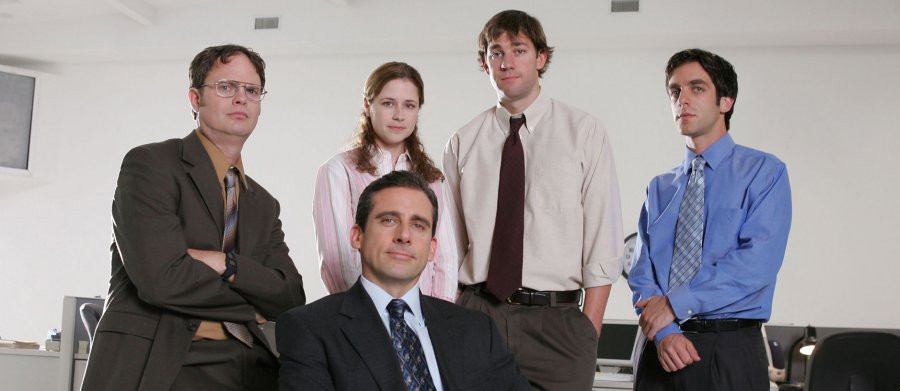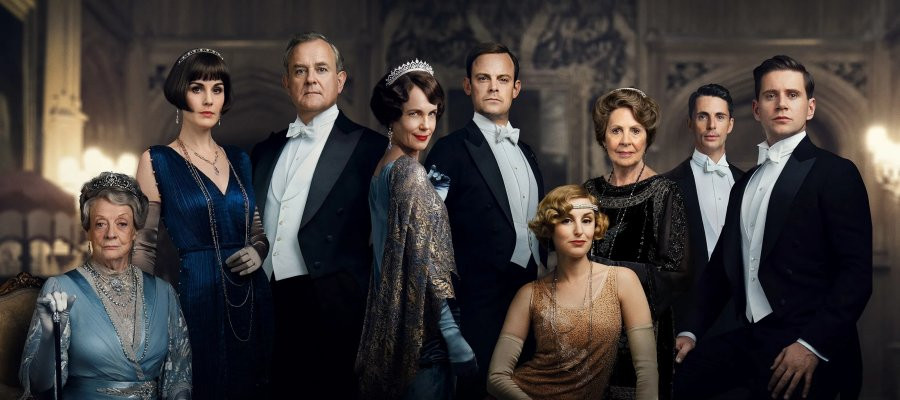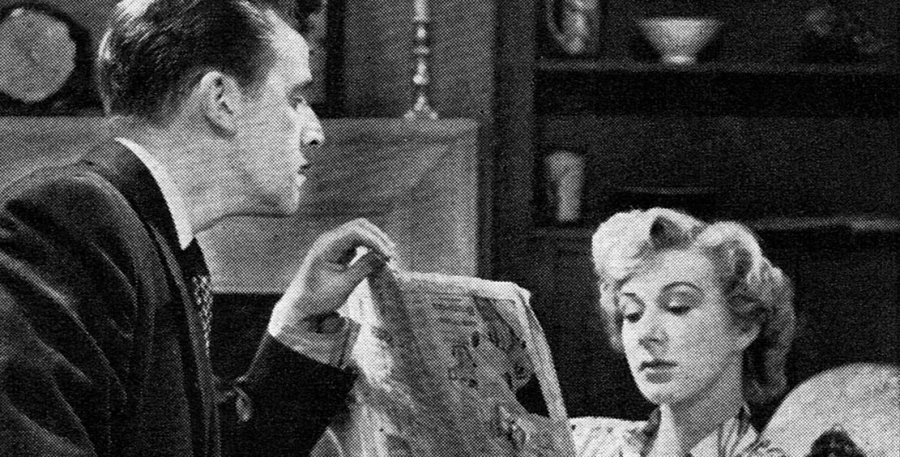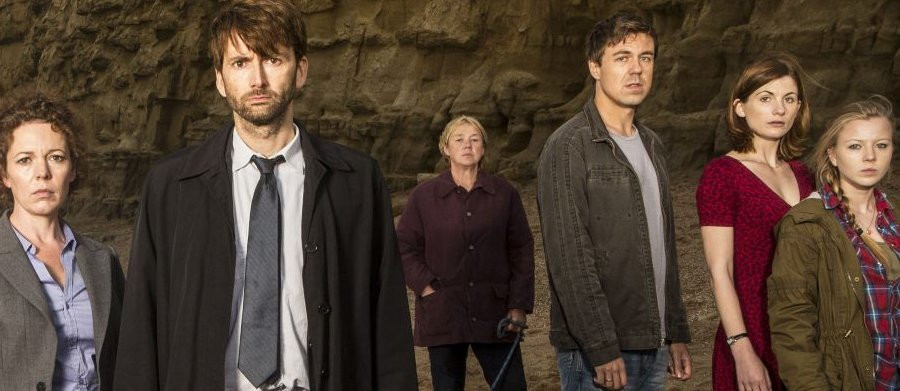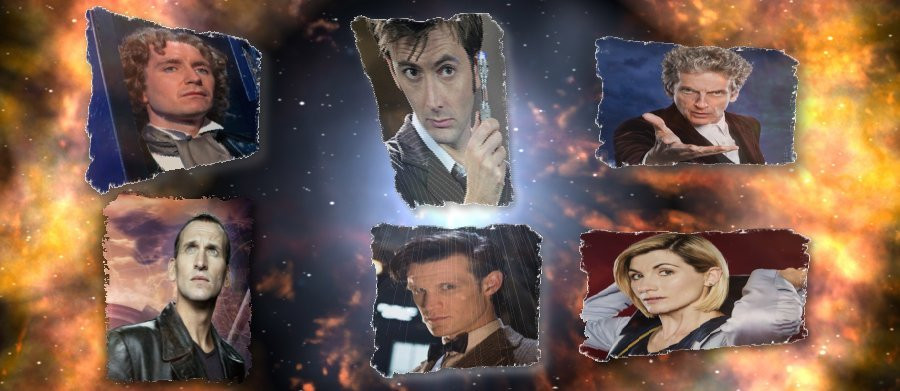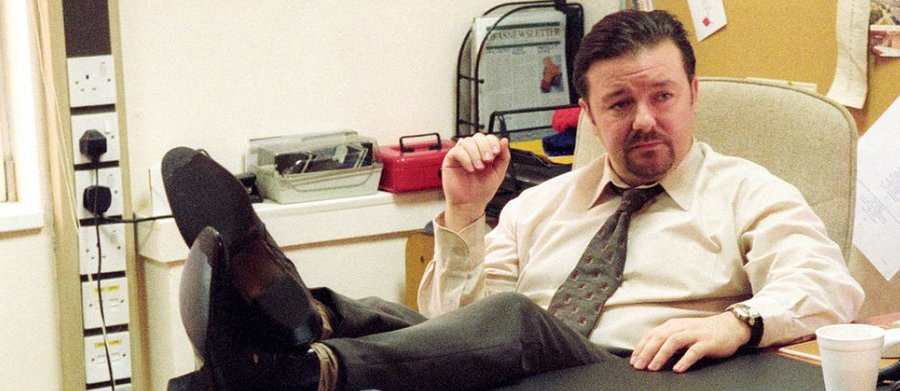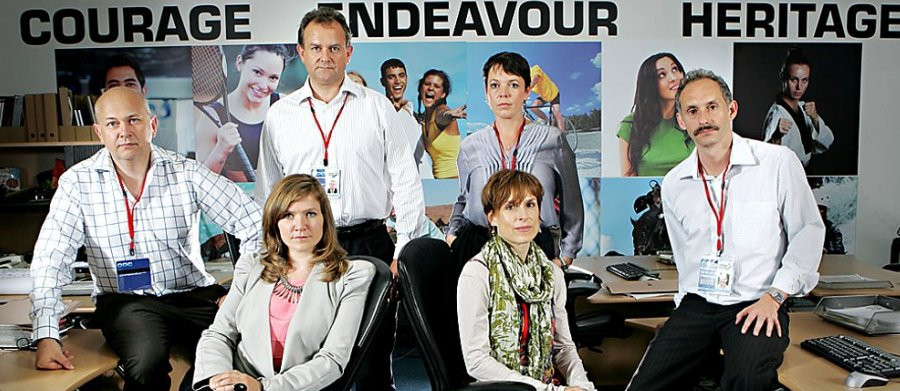
Twenty Twelve
2011 - United KingdomReview: John Winterson Richards
It seems fair to say that the British have always been wary of huge State-led prestige projects. One might argue that this is because they go against the British political traditions of liberalism and individualism, as opposed to Continental traditions of greater collectivism and statism
Or it may be simply because we are rubbish at them.
Perhaps it is one of those chicken and egg situations. Either way, the British lack an impressive list of the sort of 'grands projets' that are such a source of intense national pride in France - such as the Palace of Versailles, the Arc de Triomphe, Haussman's Grands Boulevards, the Eiffel Tower, the Centre Pompidou, the TGV, the Grande Arche de la Defense, the Louvre Pyramid, the Millau Viaduct and the restoration of Notre Dame. Yes, the Notre Dame one is still in progress, but we know the French will make a good job of it because they always do with stuff like this.
This is not to say that the UK has nothing of its own to offer. On the contrary, there is the M25, the Millennium Dome, the computerisation of the NHS, Heathrow Terminal Five, Crossrail, the Garden Bridge, and HS2. Yes, the HS2 one is still in progress but we know... well, we know...
So when, in 2005, the UK won the right to host the 2012 Summer Olympics - beating the French for the privilege, which was the whole point - there was a brief moment of national rejoicing, mainly at beating the French, followed immediately by the sinking feeling that came on waking with the realisation that Britain now had to organise the thing.
With memories of the Millennium Dome still fresh in everyone's mind, there was a general expectation of failure and national embarrassment. Indeed, by 2011, when Twenty Twelve first reached our screens and was set, the costs were already far in excess of the hilariously optimistic estimates and the project had been one unforeseen problem after another. It was assumed almost universally that another Great British Disaster was coming. Nat King Cole's 'Face the Music and Dance" took on a strangely menacing quality as the show's theme song.
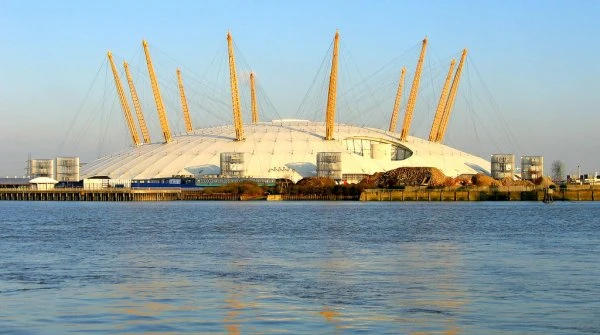
This was certainly the mood that informed the writing of Twenty Twelve and it may indeed have been a good thing for the show that no one could have predicted what a success the Olympics would turn out to be. It enabled a talented cast to sit down and do what talented British casts have always done in all the best British comedies - try to maintain a degree of dignity while bearing with adversity.
This, rather than 'grands projets,' is what Britons really do well - both the getting into adversity bit and the putting it into comedies. It is the common theme in Fawlty Towers, Dad's Army, Yes, Minister, Only Fools and Horses, and hundreds of others. Of course, adversity has always been a staple of comedy all over the world, but no one revels in it as much as the Brits.
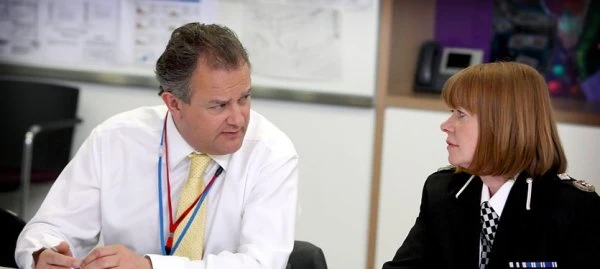
Nor does anyone do brittle calm in the face of a crisis better than Hugh Bonneville. His masterstroke here is to play Ian Fletcher, Head of Deliverance at the Olympic Deliverance Commission, not as a comic character but as a serious dramatic character who finds himself in comic situations. An old school gentleman, he seems a little uncertain about the modern world but his traditional values give him the vague impression that he ought to compromise with it in order to keep everyone happy. As a result, predictably, no one ends up happy.
Imagine if a stereotypical British leader, the sort that Jack Hawkins would have played, had been sent on a lot of "Human Resources" courses. Trained to obey, or at least do the right thing according to what the social situation demanded, he would have learned to use the jargon and follow the procedures without really internalizing or even understanding much of what he was saying and doing. Such is Ian Fletcher.
The cultural struggle inside him is the real heart of Twenty Twelve. It is not a comedy about the Olympics as much as a satire on modern management in general, especially in the public sector or quasi-public sector, with its meaningless job titles, its obsession with increasingly bizarre language, its fake compassion, and its crippling fear of breaking the ever changing unwritten rules of so-called "political correctness."
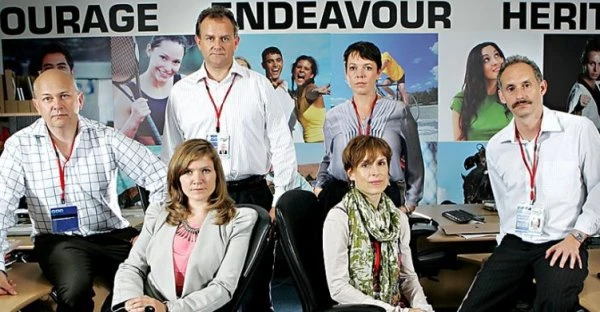
So everyone has to be seen to be very earnest about "legacy" and "sustainability," and what the difference between them, if any, might be - or "diversity" and "inclusivity," and the difference, if any, between them. A rigid self-censorship prevents anyone asking the most polite question about the Emperor's New Clothes for fear of causing offence.
This is conveyed perfectly by the fake documentary format. Unlike many such "mockumentaries," which tend to forget about the camera at crucial moments, the show sticks rigidly to the format, kept on course by a perfect deadpan commentary by David Tennant.
The Olympic Deliverance Commission has, we are assured, nothing to do with the real life Olympic Delivery Authority, the public sector organisation that was responsible for the infrastructure of the project. The fictional Commission was given a wider remit in order to increase its comic possibilities. In particular, it was granted responsibility for marketing, opening up the target rich environment of modern public relations to satire.

The whole industry is summed up in the person of Siobhan Sharpe, played by Jessica Hynes. The irony of her whole personality is that for someone who considers herself an expert on people she has no social skills and no sensitivity for the effect her breezy thoughtlessness has on those around her. Jargon is her first, and only, language, and she is fluent in it because she makes up a lot of it herself.
She is played for deliberate comic effect, and, in less skilled hands, there might be an awkward clash in style with Bonneville's more realistic performance. Yet Hynes gets away with it because there really are Siobhan Sharpes out there - far more than there should be - often in highly paid positions of great responsibility, like Siobhan.
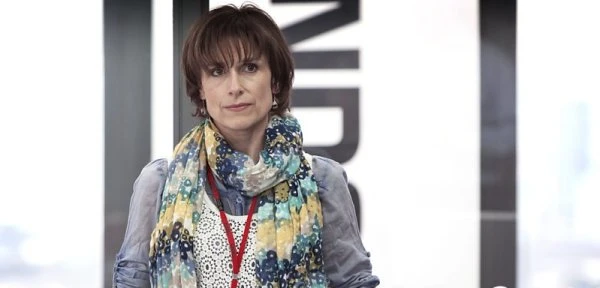
Carefully pitching herself mid way between Bonneville and Hynes in tone is the always watchable Amelia Bullmore as Head of Sustainability, Kay Hope. What exactly is a Head of Sustainability? Poor Kay seems to have no idea, except she is very sure that she does not want anyone, especially the Head of Legacy, poaching on her turf, wherever it might be.
Vincent Franklin is a plain spoken Yorkshireman - a bit of a tautology there - who likes reminding everyone that he is a plain spoken Yorkshireman. Joel Fry, Sara Pascoe, and Alex Beckett are Siobhan's acolytes, chorus, and Mutual Admiration Society.

While all this is going on at work, Fletcher's home life is collapsing around him. There is an obvious symbolism in the parallel. He is struggling to do what he thinks is the decent thing in the face of increasing challenges on all sides - observed and supported by his loyal secretary, who is, in accordance with corny old Hollywood tradition, secretly in love with her boss.

This is Sally Owen, played by Olivia Colman, then still just on the verge of the National Treasure status she finally confirmed with her Oscar Acceptance Speech. No one does poignant dignity like our Olivia and this was one of the best showcases for her talent before her canonisation.
Somewhat surprisingly, Lord Coe agreed to have his name dropped constantly and even appeared briefly in person. Perhaps he had not read the script - or perhaps he was the only person in the United Kingdom who believed the Olympics really were going to be a success.

If so, he was right, so in the end the joke was on Twenty Twelve. Ironically, as up to date a comedy as it is possible to imagine, became very dated very quickly. When people think of the 2012 Olympics now, they remember the dancing nurses, the Queen apparently sky diving into the stadium with James Bond, and a pretty impressive medal table for a small nation punching above its weight. The cost overruns and the delays are forgotten - as are the jokes that were only half-joking about how, if we asked the French very nicely, maybe they might help out.
Yet the BBC knew they were on to a good thing with their sharply written satire of modern management, and especially the characters of Ian Fletcher and Siobhan Sharpe. With the Olympics out of the way, perhaps they could be transferred somewhere else. So where, the BBC asked themselves, could they find another quasi-public sector organisation ripe for mockery?

The answer was very close at hand and the result was W1A. These days Twenty Twelve is probably best viewed as a dry run for its superior sequel - but a successful dry run that was well constructed and, at its best, extremely funny, even if the humour was, like a lot of great humour, sometimes tinged with sadness.
Seen this show? How do you rate it?
Seen this show? How do you rate it?
Published on May 1st, 2020. Written by John Winterson Richards for Television Heaven.


